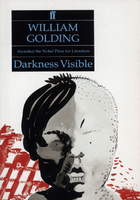Iris was awakened that night, as usual, by the express screaming through the darkness. Jumping out of bed, she reached the window in time to see it outline the curve of the lake with a fiery wire. As it rattled below the hotel, the golden streak expanded to a string of lighted windows, which, when it passed, snapped together again like the links of a bracelet.
After it had disappeared round the gorge, she followed its course by its pall of quivering red smoke. In imagination, she saw it shooting through Europe, as though it were an explosive shuttle ripping through the scorched fabric of the map. It caught up cities and threaded them on a gleaming whistling string. Illuminated names flashed before her eyes and were gone-Bucharest, Zagreb, Trieste, Milan, Basle, Calais.
Once again she was flooded with home-hunger, even though her future address was a hotel. Mixed with it was a gust of foreboding-which was a legacy from the mountains.
"Suppose-something-happened, and I never came back."
At that moment she felt that any evil could block the way to her return. A railway crash, illness, or crime were possibilities, which were actually scheduled in other lives. They were happening all round her and at any time a line might give way in the protective square in her palm.
As she lay and tossed, she consoled herself with the reminder that this was the last time she would lie under the lumpy feather bed. Throughout the next two nights she, too, would be rushing through dark landscape, jerked out of every brief spell of sleep by the flash of lights, whenever the express roared through a station.
The thought was with her when she woke, the next morning, to see the silhouette of mountain-peaks iced against the flush of sunrise.
"I'm going home today," she told herself exultantly.
The air was raw when she looked out of her window. Mist was rising from the lake which gleamed greenly through yellowed fans of chestnut trees. But in spite of the blue and gold glory of autumn she felt indifferent to its beauty.
She was also detached from the drawbacks of her room, which usually offended her critical taste. Its wooden walls were stained a crude shade of raw sienna, and instead of running water there was a battered washstand which bore a tin can, covered with a thin towel.
In spirit, Iris had already left the hotel. Her journey was begun before she started. When she went down to the restaurant she was barely conscious of the other guests, who, only a few hours before, had inspired her with antipathy.
The Misses Flood-Porter, who were dressed for writing letters in the open, were breakfasting at a table by the window. They did not speak to her, although they would have bowed as a matter of courtesy, had they caught her eye.
Iris did not notice the omission, because they had gone completely out of her life. She drank her coffee in a silence which was broken by occasional remarks from the sisters, who wondered whether the English weather were kind for a local military wedding.
Her luck held, for she was spared contact with the other guests, who were engrossed by their own affairs. As she passed the bureau, Mrs. Barnes was calling a waiter's attention to a letter in one of the pigeon-holes. Her grey jersey-suit, as well as her packet of sandwiches, advertised an excursion.
The vicar, who was filling his pipe on the veranda, was also in unconventional kit-shorts, sweater, nailed boots, and the local felt hat-adorned with a tiny blue feather-which he had bought as a souvenir of his holiday.
His smile was so happy that Iris thought he looked both festive and good, as though a saint had deserted his shrine, knocking his halo a trifle askew in the process, in order to put a coat of sunburn over his pallid plaster.
Her tolerance faded as she listened to a dialogue which was destined to affect her own future.
"Is that a letter from home?" called the vicar.
"Yes," replied his wife, after a pause.
"I thought Grandma told us to expect no more letters. What's she writing about?"
"She wants me to do a little shopping for her, on our way through London. Some Margaret Rose silk. The little Princess, you know."
"But you'll be tired. It's not very considerate."
"No." Mrs. Barnes' voice was exceptionally sharp. "It's not. Why didn't she think?"
Iris condoned her own ungracious conduct of the preceding night, as she left them to their discussion. She told herself that she was justified in protecting herself from the boredom of domestic trifles.
As she strolled past the front of the hotel, she had to draw back to avoid trespassing on the privacy of the honeymoon pair, whose sitting-room opened on to the veranda. They were breakfasting in the open air, of rolls and fruit. The man was resplendent in a Chinese dressing-gown, while his wife wore an elaborate wrapper over satin pyjamas.
The Todhunters annoyed Iris, because they affected her with vague discontent. She was conscious of the same unacknowledged blank when she watched a love-scene played by two film stars. Theirs was passion-perfectly dressed, discreetly censored and with the better profile presented to the camera.
She felt a responsive thrill when the man looked into his bride's eyes with intense personal interest.
"Has it been perfect?" he asked.
Mrs. Todhunter knew exactly how long to pause before her reply.
"Yes."
It was faultless timing for he understood what she did not say.
"Not perfect, then," he remarked. "But, darling, is anything-"
Iris passed out of earshot, while she was still slightly envious. Her own experience of love had been merely a succession of episodes which led up to the photographic farce of her engagement.
The morning seemed endless, but at length it wore away. She had little to pack, because-following tradition-her friends had taken the bulk of her luggage with them, to save her trouble. An hour or two were killed, or rather drowned, in the lake, but she was too impatient to lie in the sun.
After she had changed for her journey, she went down to the restaurant. The dish of the day was attractively jellied and garnished with sprigs of tarragon, chervil, and chopped eggs; but she suspected that it was composed of poached eels. Turning away, with a shudder, she took possession of a small buttercup-painted table in the gravelled garden, where she lunched on potato soup and tiny grapes.
The sun flickered through the dense roof of chestnuts, but the iron chair was too hard and cold for comfort. Although the express was not due for more than an hour, she decided to wait for it at the railway station, where she could enjoy a view.
She had worked herself up to a fever, so that the act of leaving the hotel seemed to bring her a step nearer to her journey. It gave her acute pleasure to pay her bill and tip the stragglers of the staff. Although she saw none of her fellow-guests, she hurried through the garden like a truant from school, as though she feared she might be detained, at the last minute.
It was strange to wear a sophisticated travelling-suit and high heels again, as she jolted down the rough path, followed by a porter with her baggage. The sensation was not too comfortable after weeks of liberty, but she welcomed it as part of her return to civilisation. When she was seated on the platform, her suitcase at her feet, and the shimmer of the lake below, she was conscious of having reached a peak of enjoyment.
The air was water-clear and held the sting of altitude. As the sun blazed down on her, she felt steeped in warmth and drenched in light. She took off her hat and gazed at the signal post, anticipating the thrill of its drop, followed by the first glimpse of a foreshortened engine at the end of the rails.
There were other people on the platform, for the arrival of the express was the main event of the day. It was too early for the genuine travellers, but groups of loiterers, both visitors and natives, hung round the fruit- and paper-stalls. They were a cheerful company and noisy in many languages. Iris heard no English until two men came down the road from the village.
They leaned over the palings behind her, to continue an argument. She did not feel sufficient interest, at first, to turn and see their faces, but their voices were so distinctive that, presently, she could visualise them.
The one whom she judged the younger had an eager untidy voice. She felt sure that he possessed an active brain, with a rush of ideas. He spoke too quickly and often stumbled for a word, probably not because his terms were limited, but because he had a choice of too many.
Gradually he won her sympathy, partly because his mind seemed in tune-or rather, in discord-with hers and partly because she disliked the other speaker instinctively. His accent was pedantic and consciously cultured. He spoke deliberately, with an irritating authority, which betrayed his inflexible mind.
"Oh, no, my dear Hare." Iris felt it should have been "Watson." "You're abysmally wrong. It has been proved conclusively that there can be no fairer or better system of justice than trial by jury."
"Trial by fatheads," spluttered the younger voice. "You talk of ordinary citizens. No one is ordinary, but a bag of his special prejudices. One woman's got a spite against her sex-one man's cranky on morality. They all damn the prisoner on different issues. And they've all businesses or homes which they want to get back to. They watch the clock and grasp the obvious."
"They are directed by the judge."
"And how much of his direction do they remember? You know how your own mind slips when you're listening to a string of words. Besides, after he's dotted all the i's and crossed the t's for them, they stampede and bring him in the wrong verdict."
"Why should you assume it is wrong? They have formed their own conclusion on the testimony of the witnesses."
"Witnesses." In his heat the young man thumped the railing. "The witness is the most damnable part of the outfit. He may be so stupid as to be putty in the hands of some wily lawyer, or he may be smart and lie away some wretched man's life, just to read about his own wonderful memory and powers of observation and see his photograph in the papers. They're all out for publicity."
The elder man laughed in a superior manner which irritated his companion to the personal touch.
"When I'm accused of bumping you off, professor, I'd rather be tried by a team of judges who'd bring trained legal minds and impartial justice to bear on the facts."
"You're biassed," said the Professor, "Let me try to convince you. The Jury is intelligent in bulk, and can judge character. Certain witnesses are reliable, while others must be viewed with suspicion. For instance, how would you describe that dark woman with the artificial lashes?"
"Attractive."
"Hum. I should call her meretricious and so would any average man of the world. Now, we'll assume that she and that English lady in the Burberry are giving contrary evidence. One of the two must be telling a lie."
"I don't agree. It may depend on the point of view. The man in the street, with his own back garden, is ready to swear to lilac when he sees it; but when he goes to a botanical garden he finds it's labelled syringa."
"The generic name-"
"I know, I know. But if one honest John Citizen swears syringa is white, while another swears it's mauve, you'll grant that there is an opportunity for confusion. Evidence may be like that."
"Haven't you wandered from my point?" asked the conventional voice. "Put those two women, separately, into the witness-box. Now which are you going to believe?"
In her turn, Iris compared the hypothetical witnesses. One was a characteristic type of county Englishwoman, with an athletic figure and a pleasant intelligent face. If she strode across the station as though she possessed the right of way, she used it merely as a short cut to her legitimate goal.
On the other hand, the pretty dark woman was an obvious loiterer. Her skin-tight skirt and embroidered peasant blouse might have been the holiday attire of any continental lady; but, in spite of her attractive red lips and expressive eyes, Iris could not help thinking of a gipsy who had just stolen a chicken for the pot.
Against her will, she had to agree with the professor. Yet she felt almost vexed with the younger man when he ceased to argue, because she had backed the losing side.
"I see your point," he said. "The British waterproof wins every time. But Congo rubber was a bloody business and too wholesale a belief in rubber-proofing may lead to a bloody mix-up. Come and have a drink."
"Thank you, if you will allow me to order it. I wish to avail myself of every opportunity of speaking the language."
"Wish I could forget it. It's a disgusting one-all spitting and sneezing. You lecture on Modern Languages, don't you? Many girl students in your classes?"
"Yes. Unfortunately."
Iris was sorry when they moved away, for she had been idly interested in their argument. The crowd on the platform had increased, although the express was not due for another twenty-five minutes, even if it ran to time. She had now to share her bench with others, while a child squatted on her suitcase.
Although spoiled by circumstances she did not resent the intrusion. The confusion could not touch her, because she was held by the moment. The glow of sunshine, the green flicker of trees, the gleam of the lake, all combined to hypnotise her to a condition of stationary bliss.
There was nothing to warn her of the attack. When she least expected it, the blow fell."
Suddenly she felt a violent pain at the back of her neck. Almost before she realised it, the white-capped mountains rocked, the blue sky turned black, and she dropped down into darkness.















